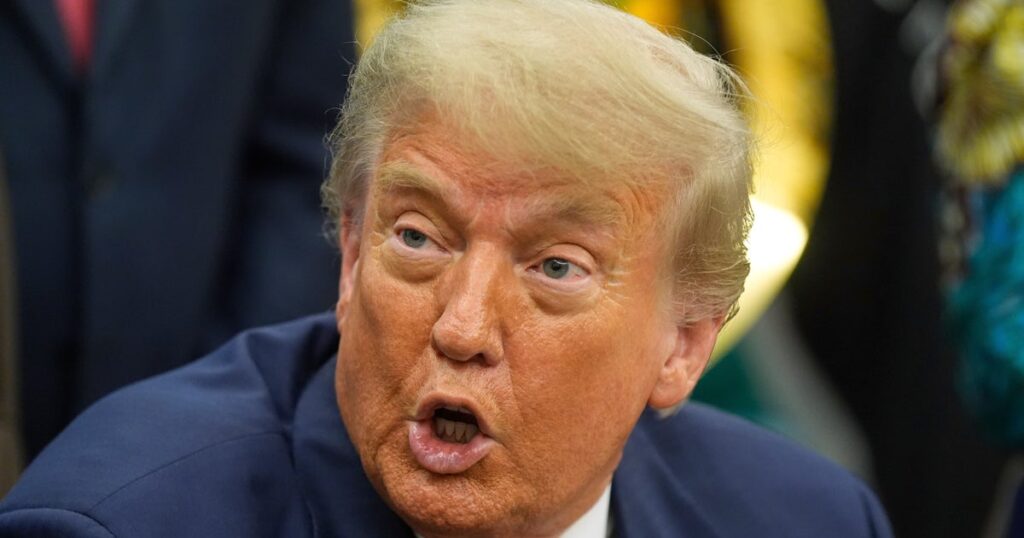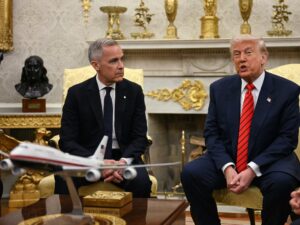
In a recent interview with Fox News host Maria Bartiromo, former President Donald Trump made comments that have left critics and commentators in disbelief. Trump suggested the imposition of new tariffs on Japan but stumbled when attempting to recall the name of Japan’s leader, referring instead to “Mr. Japan” in a hypothetical letter.
During the interview, Trump announced his intention to send out letters as the pause on tariffs is set to end early next month, using Japan as an example. He stated, “Dear Mr. Japan: Here’s the story,” and went on to propose a 25% tariff on Japanese cars. Trump’s rationale was that the United States imports “millions and millions” of Japanese cars, while Japan imports comparatively fewer American cars.
Background on U.S.-Japan Trade Relations
The relationship between the United States and Japan in the automotive industry is complex. Historically, Japan has been a significant exporter of cars to the U.S. However, the dynamic has shifted over the years. According to industry data, a substantial portion of Japanese cars sold in the U.S. are now manufactured domestically. This change has been partly due to previous trade negotiations and the establishment of manufacturing plants by Japanese companies in the United States.
Despite Trump’s claims, Japan’s investment in the U.S. is considerable. The country has invested around $700 billion in the American economy and employs nearly one million Americans through various industries, including automotive manufacturing.
Reactions and Criticism
The phrase “Dear Mr. Japan” quickly became a focal point of criticism on social media and among political commentators. Critics argue that such a lapse in diplomatic protocol is indicative of a lack of preparedness and understanding of international relations. Barbara Comstock, a former congresswoman, tweeted, “Dear Mr. Japan? Trump doesn’t know what or who he is talking about.”
“If President Biden started a sentence with ‘Dear Mr. Japan,’ Republicans would never shut up about it and ’25th Amendment’ is all they’d be talking about.” — BrooklynDad_Defiant!
These reactions highlight the polarized nature of political discourse in the United States, where every misstep is scrutinized and politicized. The comments also sparked a broader discussion about the importance of diplomatic etiquette and the potential consequences of such oversights.
Implications and Future Prospects
Trump’s comments come at a time when the global trade environment is already tense, with ongoing negotiations and disputes affecting economic relations worldwide. The suggestion of new tariffs on Japanese cars could have significant implications for both countries, potentially straining an already delicate balance in trade relations.
Experts suggest that while Trump’s rhetoric may resonate with certain domestic audiences, the practical implications of imposing such tariffs could be detrimental to U.S. consumers and manufacturers. The cost of imported goods could rise, and retaliatory measures by Japan could further complicate trade dynamics.
“Fact: Japan manufactures more cars in the US than it imports to US. Japan has some $700 billion invested in US, employs close to 1 million Americans.” — Robert Manning
Looking forward, the focus will likely remain on how such statements might influence future trade policies and negotiations. While some view Trump’s approach as a strategic move to bolster American manufacturing, others see it as a potential risk to international cooperation and economic stability.
As the situation develops, it will be crucial for policymakers to consider the broader implications of trade decisions and to engage in informed, diplomatic discussions with international partners.





